
U News | University of Delaware receives largest gift in its 282-year history
The University of North Carolina at Charlotte recently opened the CO-LAB at UNC Charlotte's Center City.
From the University of Delaware:
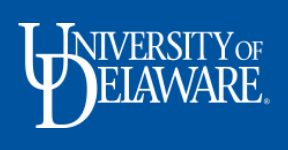 The University of Delaware (UD) has received the largest philanthropic contribution from an individual or family in the University’s 282-year history. It was a $71.5 million commitment from Robert L. Siegfried Jr. and Kathleen Marie (Horgan) Siegfried, along with The Siegfried Group, LLP, that will benefit UD’s Alfred Lerner College of Business and Economics.
The University of Delaware (UD) has received the largest philanthropic contribution from an individual or family in the University’s 282-year history. It was a $71.5 million commitment from Robert L. Siegfried Jr. and Kathleen Marie (Horgan) Siegfried, along with The Siegfried Group, LLP, that will benefit UD’s Alfred Lerner College of Business and Economics.
Both donors are both UD alumni and have been philanthropists to the University for decades. President Dennis Assanis and Lerner College Dean Oliver Yao will welcome the Siegfrieds back to campus to celebrate this generous gift with members of the UD community later this spring. The donation positions the Lerner College among an elite group of U.S. business schools that have received this level of philanthropic investment in student success.
“This is a transformative moment for the University of Delaware and our Lerner College of Business and Economics,” said Assanis. “The Siegfrieds’ generosity will significantly advance Lerner’s critical mission of preparing the next generation of leaders, change-makers and entrepreneurs to make an impact in the rapidly evolving world of business and economics.”
The Siegfrieds’ support will help create Lerner College’s Siegfried Hall, a state-of-the-art, student-centric learning space with modern classrooms, research and teaching labs, a student-run café, and an auditorium.
From Tulane University:
 Tulane University has received a $1 million gift from Jeffrey Miller and Tina Beltran-Miller, the parents of a fourth-year student, to support its award-winning Innovation Institute. The institute was launched in 2022 to lead the university’s entrepreneurial startup and research and technology commercialization efforts.
Tulane University has received a $1 million gift from Jeffrey Miller and Tina Beltran-Miller, the parents of a fourth-year student, to support its award-winning Innovation Institute. The institute was launched in 2022 to lead the university’s entrepreneurial startup and research and technology commercialization efforts.
The couple’s gift has created the Miller Family Endowed Fund, which will finance the Innovation Institute’s activities and expenses at the discretion of Kimberly Gramm, the David and Marion Mussafer Chief Innovation and Entrepreneurship Officer. The unrestricted endowment will support entrepreneurial and educational programming, investment funding, pitch competitions, proof-of-concept awards and more.
“We are profoundly grateful to Jeffrey and Tina for their extraordinary generosity,” Gramm said. “Their endowment will allow us to build on our early successes, accelerate the transformation of Tulane research into groundbreaking technologies, and expand our efforts to create and support local startups. From proof-of-concept development to investment funding and community programming, the Millers’ gift strengthens every facet of our work.”
“Tulane is an institution bursting with creativity and entrepreneurial spirit,” said Jeffrey Miller, Managing Partner of Krillion Ventures, a venture capital firm in Miami specializing in early stage companies in health care, financial services, and real estate. “We’re thrilled to invest in the future of the university and the unique city that it calls home and excited to see how our gift will help the institute nurture the ideas of its students, faculty, alumni, and local entrepreneurs into inventions that can change the world.”
Beyond advancing entrepreneurial initiatives within the university, the institute strives to catalyze economic growth throughout the city and across the Gulf South, generating lasting wealth for Louisiana residents.
One of the programs the Miller Family Endowed Fund will help facilitate is the Innovation Institute’s Young Entrepreneurship Academy (YEA!). This after-school program equips New Orleans high school students with skills and resources to be the next generation of business leaders and innovators. Launched in August 2024, this initiative affirms the institute’s commitment to entrepreneurship in the region at the community level. In February, a panel of judges that included Jeffrey Miller heard pitches from the students who competed for and received startup funding to support the continuing development of their business ideas.
From the Pennsylvania State University:
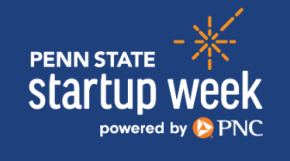 Penn State Startup Week powered by PNC is roughly midway through the activities that offer students across the commonwealth the chance to engage with the university’s innovation and entrepreneurship ecosystem through a variety of free events.
Penn State Startup Week powered by PNC is roughly midway through the activities that offer students across the commonwealth the chance to engage with the university’s innovation and entrepreneurship ecosystem through a variety of free events.
“As a national bank headquartered in the commonwealth, PNC invests in programs that drive innovation and foster an entrepreneurial mindset among future leaders,” said Jim Hoehn, PNC Regional President in Central Pennsylvania. “We’re proud to support Penn State Startup Week once again, helping students connect with industry leaders, explore new ideas, and gain the skills they need to be successful after graduation.”
From hands-on workshops and one-on-one mentorship sessions with alumni to engaging speaker talks and social events, Startup Week provides opportunities for students to explore the entrepreneurial resources available to them. To view the schedule, click here.
From the University of North Carolina at Charlotte:
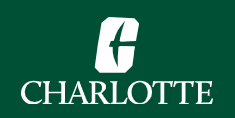 Officials at the University of North Carolina at Charlotte (UNC Charlotte) recently opened the CO-LAB at UNC Charlotte Center City alongside entrepreneurs, innovators, corporate leaders, and community members.
Officials at the University of North Carolina at Charlotte (UNC Charlotte) recently opened the CO-LAB at UNC Charlotte Center City alongside entrepreneurs, innovators, corporate leaders, and community members.
“CO-LAB is more than just a space — it’s a catalyst,” said Charlotte Chancellor Sharon L. Gaber. “It’s where entrepreneurs and innovators can access the expertise of UNC Charlotte and work together to tackle real-world challenges. We are proud to sponsor CO-LAB, and we can’t wait to see the ideas and breakthroughs that will emerge from this space.”
The new facility is part of the Belk College of Business’s Center for Entrepreneurship and Innovation. CO-LAB houses five programs including 49er Foundry, the incubator focused on students; EO Charlotte; gener8tor; RevTech Labs; and The Boost Pad.
From Washington and Lee University:
 Washington and Lee University (W&L) has opened registration for its 2025 Entrepreneurship Summit to be held on campus April 11-12.
Washington and Lee University (W&L) has opened registration for its 2025 Entrepreneurship Summit to be held on campus April 11-12.
The summit is a two-day event designed to encourage innovative business ideas and strategies while providing the perfect opportunity to connect, learn, and grow the entrepreneurial spirit. The Entrepreneurship Summit is open to the entire W&L community and interested guests, alumni, faculty, and staff.
The event features several presentations and panels offering deep dives into topics such as emerging technologies (artificial intelligence and cryptocurrency), launching consumer brands, entrepreneurial acquisitions, and building lifestyle brands. The event is designed to connect, inspire, and support the next generation of entrepreneurs within the W&L community. Highlights include an alumni pitch session, a student pitch competition, a mentorship luncheon, a networking reception, trivia, and more.
Two W&L alums – Ward Waltemath, Managing Director for the Technology, Media, and Telecommunications Group at Goldman Sachs, and Ethan Smith, Co-Founder and Chief Executive Officer of Spur – will serve as the program’s keynote speakers and nearly 20 alumni will serve as speakers or presenters across the two days.
From the University of Colorado Boulder:
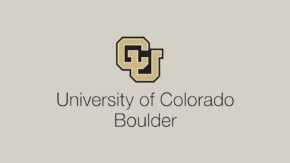 In the evolving landscape of venture capital (VC), Buff Gold Ventures has positioned itself as a pivotal player in supporting innovative start-ups emerging from the University of Colorado ecosystem. Co-founded by Mark Lupa and Sally Hatcher, the firm takes a hands-on approach in guiding entrepreneurs through the complex process of launching and scaling their businesses.
In the evolving landscape of venture capital (VC), Buff Gold Ventures has positioned itself as a pivotal player in supporting innovative start-ups emerging from the University of Colorado ecosystem. Co-founded by Mark Lupa and Sally Hatcher, the firm takes a hands-on approach in guiding entrepreneurs through the complex process of launching and scaling their businesses.
Buff Gold Ventures is a VC firm dedicated to investing in early stage, deep-tech start-ups, with a strong focus on companies originating from the University of Colorado Boulder (CU Boulder). The firm’s portfolio spans diverse sectors, including biotechnology, climate tech, and next-generation semiconductor technologies.
Start-ups find their way to Buff Gold Ventures through multiple channels. One primary source is CU Boulder’s Venture Partners program, which helps commercialize university research into viable businesses. Buff Gold Ventures actively scouts promising start-ups from CU’s various schools, including Leeds School of Business. Over the past three years, the firm has evaluated more than 200 start-ups, many of which were founded by CU Boulder graduates who transitioned into entrepreneurship after gaining industry experience.
From the University of Georgia:
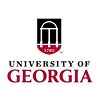 The University of Georgia (UGA) is joining the NextGenAI consortium, a partnership with 14 other leading research institutions and technology company OpenAI to accelerate artificial intelligence (AI) research and education.
The University of Georgia (UGA) is joining the NextGenAI consortium, a partnership with 14 other leading research institutions and technology company OpenAI to accelerate artificial intelligence (AI) research and education.
OpenAI, known for its generative AI technologies including ChatGPT, is committing $50 million in research grants, access to OpenAI’s tools, and compute funding through the consortium. The initiative will support the discovery and development of new applications for AI and provide students with hands-on experience working with the technology.
Joining UGA as founding members of the consortium are private institutions Caltech, Duke University, Harvard University, Howard University, and Massachusetts Institute of Technology, as well as public institutions including the California State University system, the University of Michigan, the University of Mississippi, The Ohio State University and Texas A&M University. Other partners include the University of Oxford, Sciences Po, Boston Children’s Hospital, the Boston Public Library, and OpenAI.
From Arizona State University:
 An Arizona State University-led, multi-institutional enterprise is funding eight promising companies with technologies that stand to spur economic growth in the desert Southwest. Known as the National Science Foundation’s (NSF) Southwest Sustainability Innovation Engine, or SWSIE, the initiative has announced $1.5 million in its inaugural round of Innovation Grants, which are intended to support the transition from proven model or prototype to commercialization.
An Arizona State University-led, multi-institutional enterprise is funding eight promising companies with technologies that stand to spur economic growth in the desert Southwest. Known as the National Science Foundation’s (NSF) Southwest Sustainability Innovation Engine, or SWSIE, the initiative has announced $1.5 million in its inaugural round of Innovation Grants, which are intended to support the transition from proven model or prototype to commercialization.
Launched in early 2024, SWSIE is one of the NSF’s inaugural Regional Innovation Engines. By uniting academic, community, nonprofit, and industry partners across Arizona, Nevada and Utah, SWSIE is creating a regional economic development ecosystem in the Southwest. This ecosystem is based on technological solutions to air quality, water scarcity, and energy security — domains that enable regional industries in the Southwest critical to the global economy and national security.
SWSIE received more than 220 applications from 16 states, and applicants underwent a rigorous selection process involving multiple SWSIE partners.
Like what you've read?
Forward to a friend!

